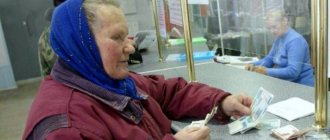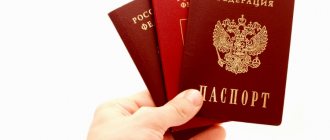The Israeli state is one of the few in the world that has a strong program to support those displaced by their origin. Benefits and allowances for repatriates in 2021 in Israel can greatly facilitate the adaptation process. But not everyone knows to what extent and who exactly can count on help. If you approach the issue wisely, you can feel the benefits of government support already in the first days after moving.
Life of repatriates after moving
The law on the return of Jews to their ancestral homeland was adopted in 1950. According to this document, children and grandchildren of persons of Jewish nationality who can prove the presence of Jewish roots with documentary evidence can take part in the resettlement program.
Repatriation to Israel is possible by going through the so-called conversion procedure - conversion to Judaism. Of course, no one can force a candidate and his relatives to change their faith. But those who profess a different religion risk not getting into the program.
The procedure for confirming origin takes place under the supervision of a rabbinical court, which exists in every state where Jews live. If the court's decision is positive, the candidate becomes a repatriate and can count on all the benefits for new repatriates in Israel. If it turns out to be negative, you will have to choose another emigration route. In this case, the process will begin with obtaining a residence permit, then permanent residence, and only after that – citizenship.
The conversion procedure is described in detail in the article: “Conversion: what it is and how to undergo it in 2021.”
The resettlement of Jews from the Russian Federation, Ukraine and other countries to the Promised Land is called “aliyah”. This is where the name of the Ministry of Aliyah and Absorption (Repatriation) came from.
Repatriation programs in 2021
Application for citizenship
The implementation of such projects on behalf of the Israeli government is carried out by the Sokhnut agency, created to support returnees and accompany their resettlement to the Promised Land. The agency has developed its own program for each category of immigrants.
Youth and children's programs
Among the most popular:
- MASA is a program for boys and girls, as well as young spouses under 30 years of age. The project is designed for six months to a year. Provides internships for young people in religious, student and volunteer projects.
- SALA-WORLD. A project to prepare young people for admission to universities and vocational schools. The duration of the project is 10 months.
- NAALE is a long-term program for 3-4 years for school-age children who need to improve their subjects.
- ELI is a project for training madrichs. These are group leaders and young counselors. Upon completion of the program, they can get a job in one of the Sokhnut stalls.
- IL is a camp for Russian-speaking children and teenagers, where they are provided with interesting recreation and acquaintance with the culture of Israel.
Absorption programs
Developed by the Jewish Agency and designed to help repatriates solve everyday issues. Among the most famous:
- A set of youth programs designed to assist young people aged 18 to 35 in providing housing, as well as in learning Hebrew.
- An absorption project in which migrants are given the right to choose their place to live. Each city offers its own benefits. The Ashdod municipality provides long-term housing for immigrants and offers free Hebrew instruction. The city of Ramle only provides housing for a week.
- A program called “First Home in the Motherland.” She helps married and single immigrants aged 28-45 settle in kibbutzim. This is what rural communes are called in Israel. Immigrants receive housing, learn Hebrew and adapt to their new life.
Professional programs
The projects are designed to employ new Israeli citizens. Options for retraining and acquiring a new specialty are being prepared for them. There are programs for drivers and nurses. The list of specialties that are supported by professional programs from Sokhnut is actually very long.
One price for the whole family
The cost of obtaining citizenship is the same for a family of 4 people. We have developed 2 packages of services, which you can familiarize yourself with in the “prices” section and choose what you need.
Obtaining citizenship as quickly as possible
The period for obtaining Israeli citizenship is from 3 days, and does not obligate permanent residence in Israel. The entire procedure is carried out in accordance with Israel's Law of Return.
Benefits of Israeli citizenship:
- No visa required for over 160 countries
- High level of Israeli medicine
- Sustainable banking system and investment transparency
- Transparent relationships between business and government
- Low crime rate
Application for citizenship consultation
State support programs
Considering that spending on social protection of the population has reached impressive levels in the country's budget, the authorities decided to reduce the list of benefits by about 5% and tighten the requirements for candidates. Such measures have led to reductions in payments for many categories.
In this situation, repatriates have the opportunity to receive enough additional money (from a free air ticket and payments from the repatriate basket to assistance from the Ministry of Aliyah and Absorption and additional payments to wages) or enjoy benefits for education, paying taxes and obtaining a cheap loan for the purchase of social housing.
Let's try to find out how to survive on benefits in Israel and whether repatriates have a chance of staying in the country.
What is an absorption basket
In Hebrew, this type of assistance is called “sal klita.” Repatriates receive it at the initial stage of resettlement and until final integration into a new life.
To begin with, the candidate receives a free air ticket and a receipt for additional baggage from the Israeli agency Sokhnut. The above-mentioned ministry is responsible for the payments themselves.
Israel's 2021 budget proposed not to provide an absorption basket for those whose assets are valued at more than NIS 500,000. Repatriates who sold property and real estate in their homeland to buy housing in Israel, and brought with them an amount of no more than a third of the cost of an apartment in the country, will be left without an absorption basket.
This will have a significant impact on single repatriates, who receive 35,000 shekels for the entire payment period (for a married couple this amount is 60,000 shekels).
The repatriation basket in Israel is a kind of free gift from the state to new members of Israeli society. Basic conditions:
- total residence on Israeli territory for two of the last three years that preceded the receipt of repatriate status.
- the repatriate came to the country for the first time on an appropriate visa.
The size of the payment depends on the following factors:
- whether the candidate is a pensioner;
- emigrates alone or with family;
- does he have children?
The basket is divided into two payments. The first is issued in two payments:
- part - at the airport in cash - 1250 shekels ($313);
- the second part is later transferred to a bank account - 1,430 shekels ($358). To conclude an agreement with a bank, you need to contact a financial institution in the first days of your stay in the country.
Subsequent payments for the absorption basket are made in six payments, each of 2,622 shekels ($656). You can receive them within a year.
If the benefit recipient leaves the state, payments stop. They can be restored only after returning and only during the first 12 months of emigration.
After all payments have been made, the Ministry of Construction will continue to pay benefits for the next 4 years.
The amount of the subsidy for repatriates in Israel in this article is indicated per person of non-retirement age.
Subsistence allowance
If the absorption basket is paid in full, but the repatriate is still unemployed, he becomes entitled to assistance from the Ministry of Aliyah and Absorption, which provides him with a living wage.
The amount of the benefit is determined individually and depends on a number of circumstances:
- availability of other income;
- being married;
- presence of children.
So, for example, benefits in Israel for repatriates, if we are talking about unmarried women aged 20-25 who are registered with the Employment Center, are set at 1,384 shekels ($346).
This type of payment is not provided automatically. To receive them, you must submit an application to the ministry adviser and submit documents.
Salary supplements
A wage supplement is provided for working migrants during the first year of their stay in the country. The only condition is that the total income per family should not exceed the minimum threshold provided by law.
Today the minimum wage in Israel is 5,300 shekels ($1,483). The average salary in the country reaches 10,073 shekels ($2,817).
The salary depends on the employee’s age (up to 18 or older), the payment scheme, locality and specialty. The most in demand in the country are programmers, workers at factories manufacturing various types of structures, and doctors.
Help for certain segments of the population
The category of persons in need of assistance includes:
- disabled people;
- pregnant women;
- single mothers with children under 7 years old;
- repatriates of pre-retirement age;
- other citizens who are unable to work due to health, age or marital status.
Old age benefits in Israel for repatriates in 2021, as for other citizens, have nothing to do with pension payments. It is issued to persons who were recognized as pensioners in their country, but did not manage to work in Israeli territory for 10 years, and moved before they turned 60 years old. The payment must exceed the minimum subsistence level of 1,384 shekels ($384).
Pensions in Israel for emigrants from Russia and other countries are fully available only if they arrived in the country 10 years before they reached retirement age and were employed all this time. Those who did not have time to complete such length of service will be entitled to a funded pension, the amount of which usually does not exceed the old-age benefit. But persons who have worked in the country for about 30 years will receive 6,000 shekels ($1,500).
Regardless of the size of the pension, benefits for elderly repatriates in Israel are provided on an equal basis with other citizens. They can count on the following discounts:
- payment for using television – 50%;
- travel on public transport – 50%;
- rental housing or property tax (if there is only one apartment) – 50%;
- medicines from the “social basket” – 75%;
- visiting various cultural events – 50%.
Particular attention is paid to people with disabilities. If a housewife has lost up to 75% of her legal capacity, the amount of assistance will be 2,400 shekels ($671).
Help for the unemployed
If a person loses his job for reasons that were beyond his control, he can also receive benefits, which will be paid until he finds work again. Men up to 65 years of age and women up to 50 years of age can count on such assistance. To do this, you need to confirm that the currently unemployed person has worked at the company for at least 5 months.
To receive payments, you need to register with the employment service. In case of refusal of the offered vacancy, unemployment benefits are temporarily suspended. It will be possible to submit a new application only after 3 months.
A person who has not reached 35 years of age and has a low salary is also covered by unemployment payments. If an employee quits voluntarily, he will be paid benefits only for three months.
Demobilized soldiers or persons over 45 years of age are entitled to support for six months. The amount of the benefit ranges from 48-80% of the salary (only the last 2.5 months of service are taken into account).
A woman who left her job after 60 years of age on her own initiative will not be able to receive help.
Additional one-time assistance
In some cases, additional payments are made to repatriates in Israel in 2021. For example, refugees who are resettled from disaster areas are entitled to additional one-time assistance.
In addition, the Israeli authorities are very actively implementing a program for settling areas with a small number of inhabitants. Emigrants who decide to settle in such regions receive a one-time payment to cover moving costs and a monthly allowance for the first time. This project is very reminiscent of the Russian program “Compatriot”.
Israel: benefits and allowances for new immigrants
Benefits and benefits in Israel for newly arrived immigrants are very generous. However, their variety and quantity can make your head spin and confuse you as soon as you start to sort through all the brochures and guides to the “new life”.
Many repatriates get lost in this diversity. Because of this, they may not receive the required benefits and subsidies. In this article we will figure out what you need to pay attention to first.
Cash benefits and benefits in Israel
Absorption basket
The Ministry of Aliyah and Absorption provides support to immigrants from the very first steps of aliyah to full integration into Israeli life. The ministry is responsible for providing financial assistance to new citizens. The absorption basket, or otherwise “sal klita,” is a cash subsidy provided to repatriates upon arrival in Israel. Its purpose is to help with the initial setup. This is a kind of gift for new repatriates, which will not have to be returned to the state later. The amount of the subsidy depends on:
- whether the new citizen is of retirement age or not
- repatriated alone or with family
- whether there are children (there is an additional payment for each child) or not.
For convenience, the article will indicate the amount of financial assistance for a single repatriate of non-retirement age. Information on payments to other categories of citizens can be found on the Ministry’s website.
The “absorption basket” is divided into two parts. The first part is paid in two payments: in cash at the airport immediately upon arrival of the new citizen in the amount of 1,250 shekels ($313). Later, 1,430 shekels ($358) are transferred to a bank account. It should be opened in the first days of life in Israel. The second part consists of six payments of 2,622 shekels ($656) each. The repatriate receives them throughout the year. If the repatriate leaves the country, payments automatically stop. Payments are restored upon return within the first year after emigration to Israel.
The absorption basket also includes financial assistance for rent. Once the basket payment ceases (after the first year), the Ministry of Construction continues to provide assistance for the next four years.
Living wage benefit
After the end of the absorption basket payments and before the end of the first year of life in Israel, provided that the immigrant is still looking for work, he is guaranteed payments from the Ministry of Aliyah and Absorption that provide a living wage.
The amount of the benefit is determined individually and depends on many factors:
- availability of other sources of income
- family composition and others.
Thus, an unmarried woman 20-25 years old who is required to report to the employment service (unemployed, low-wage workers, undergoing vocational training) is paid 1,384 shekels ($346). More detailed information can be found on the website of the National Insurance Institute.
The subsistence allowance is not issued automatically (unlike the absorption basket). To receive financial assistance, you must:
- contact a personal advisor at the Ministry of Aliyah and Absorption
- and provide the necessary documents.
It is important to be registered with the Employment Bureau.
Salary supplement
It is guaranteed to working repatriates in the first year of stay. But provided that the family income is below the minimum established by law. The minimum wage in Israel is 4,650 shekels ($1,163). You can find out more information about the minimum wage here.
Benefit for “weak” sections of the population
The “weak” segment of the population means disabled people, single mothers with children under 7 years of age, pregnant women, repatriates of pre-retirement age and other new citizens who cannot work due to age, health or marital status.
The benefit is paid from the moment the last payment of the “absorption basket” is received until the end of the first year of stay in the country. To continue receiving payments, you must contact the National Insurance Service at your place of residence.
Educational benefits
Ulpan
Ulpan is a Hebrew course for new immigrants. Along with basic language knowledge, new citizens receive information about the culture, history and traditions, as well as the socio-economic structure of Israel.
As a general rule, instruction in the first level of Hebrew "alef" is provided. If the repatriate already has knowledge of the language, then he is given the opportunity to choose a program that matches his level. Free training is provided for 18 months from the date of repatriation and usually takes about five months, 25 hours per week. There are morning ulpans and evening ulpans for working people. For specialists with higher education, there are professional ulpans, where professional vocabulary is also studied. For example, for medical, scientific and technical workers, teachers.
There are ulpans for pensioners and disabled people, private ulpans, summer ulpans for children, for students and others. You can learn more about them on the website of the Ministry of Aliyah and Absorption.
Benefits for students and schoolchildren
Students are provided assistance in the form of tuition fees at universities and colleges that are recognized by the Office of Student Affairs, a department of the Ministry of Aliyah and Absorption. You must contact the Office within 36 months from the date of receipt of repatriate status, where they will tell you in detail about the conditions for admission to the educational institution, the required documents, the required level of Hebrew proficiency and the procedure for receiving financial assistance.
Schoolchildren can receive a “schoolchild basket”, which is transferred to the educational institution. It is intended to pay for textbooks, excursions and cultural events. Its size depends on the age of the child and the date of repatriation. Also, repatriate schoolchildren have the right to group auxiliary lessons to compensate for the gap in the curriculum.
More detailed information can be found on the website of the Ministry of Aliyah and Absorption and on the website of the Ministry of Education.
Tax benefits
Preferential taxation is perhaps the most important part for a new repatriate. It is worth noting that different tax breaks are provided at different times. Firstly, when entering the country, there are customs benefits for the import of personal belongings, household appliances, furniture, and cars. Secondly, there are benefits when purchasing a car. The repatriate may pay only 50% of the total tax dues and VAT. The benefit can be used within 3 years from the date of receiving repatriate status.
Income tax in Israel is calculated on a progressive scale. This means that the tax rate directly depends on the amount of income. Up to a certain level, citizens' income is not taxed, but then the tax rate increases as income increases. The minimum income tax rate is 10%, the maximum is 50%. For new repatriates, a partial exemption from income tax is provided for 3.5 years from the date of receiving repatriate status.
New citizens are exempt from paying taxes on income earned abroad for 10 years from the date of repatriation. More information about taxation can be found on the Israel Tax Authority website.
Benefits and benefits in Israel: other types of government assistance
Housing benefits
The state provides a loan for the purchase of housing (mashkanta) within 10 years from the date of receipt of repatriate status. It consists of a main loan and a conditional grant. The main loan is issued at 4 percent per annum for a term of 20–28 years. A conditional subsidy is a deduction to the bank of one fifteenth of the provided mashkanta annually for 15 years. If during this time the apartment is not sold, then the subsidy turns into a gift and will not have to be returned to the state. If the apartment is sold, the remaining amount must be returned in full at 2% per annum and taking into account inflation. More information about mortgages can be found on the website of the Ministry of Construction.
Simplified acquisition of a driver's license
During the first year of living in Israel, a new citizen can drive a car with a license obtained in another country. You must then obtain an Israeli driver's license within three years. You will only need to pass the practical part of the exam.
Employment
In accordance with the level and profile of education and work experience, an individual employment program can be drawn up for a new repatriate.
In Israel, representatives of many professions must obtain a license to work by passing an exam, or confirm their qualifications with the relevant department. A license is needed for teachers, dentists, psychologists, doctors, and lawyers. For representatives of other professions, in accordance with the Employment Law, exams may be held, including testing of theoretical knowledge and practical skills. Pilots, waiters in cafes, cooks, chemists and many others need to confirm their qualifications (a complete list, as well as a list of documents required for confirmation, can be found on the website of the Ministry of Aliyah and Absorption).
The Ministry of Absorption provides preparation courses for licensing exams. There is also an online system that allows you to check the need for licensing of activities before repatriation.
Health insurance
The main health law is the National Universal Health Insurance Act 1995. New repatriates are insured regardless of age and health status. For the first 6 months, the repatriate is exempt from paying health care tax. The tax is 4.8% of the salary of an Israeli citizen. This period can be doubled if:
- after six months of living in the country, the repatriate did not find a job
- and the only income is receiving subsidies from the Ministry of Aliyah and Absorption.
Tags:
Israel
Benefits for education
The state strongly supports those who want to study in their new homeland. But a more correct question would be not how much money is given to repatriates in Israel for study, but what kind of discount applies to them.
Hebrew learning
New arrivals have the opportunity to learn the language in special courses called “ulpan”. In addition to obtaining basic linguistic knowledge, they are given the opportunity to get acquainted with the culture, traditions, history, and socio-economic structure of the state.
If the repatriate does not speak the language, he studies at the first level - “alef”. If he has certain knowledge, he is given the opportunity to choose the appropriate program.
Emigrants can take courses within 1.5 years from the date of arrival in the country. Most often, the process takes about 5 months (25 hours per week).
Professional ulpans are provided for workers with higher education. There are also courses for the disabled, pensioners, students and children.
Benefits for schoolchildren and students
For university students, tuition is paid by the state, provided that the educational institution is accredited and recognized by the Ministry of Aliyah. The application must be submitted within 36 months of receiving repatriate status.
There is a special “basket” for schoolchildren, which is transferred by the state to the school. It covers the cost of purchasing textbooks, paying for cultural events and excursions. To compensate for the gap in the program, students can take advantage of additional classes.
For repatriates with children, the state partially compensates the costs of kindergartens if the mother is registered with the employment center, and attendance at a preschool institution will be at least 24 hours a week.
Other types of benefits
There are other benefits: language learning, simplified acquisition of a driver's license, etc.
New immigrants can study Hebrew for free in ulpans. In addition, they gain knowledge about the culture, traditions, and history of Israel.
The course program is selected according to the level of the repatriate: some need to learn from scratch, while others already have a certain level.
After repatriates stay in Israel, they can drive a car for a year with a license from the country of origin. Then you will need to obtain an Israeli license within 3 years. If you have more than 5 years of driving experience, then you do not need to take the exam - just get an Israeli license based on your existing one.
Also in Israel there are benefits for schoolchildren, students, doctors and others. The state is interested in qualified specialists, so it helps repatriates get an education and build a career.
Consulting specialists will tell you about the benefits you are entitled to in Israel. We will also provide assistance in obtaining them: we will tell you where to go, what documents to provide, and help you settle all bureaucratic formalities. Contact us at 8 (800) 600-34-42, or by writing to Viber or WhatsApp.
Benefits for paying taxes
Tax benefits for repatriates in Israel are provided at different stages of life in the country. The first thing the state does for them is to cancel customs duties on the import of household appliances, personal belongings, cars and furniture. Secondly, expats have the opportunity to purchase a car with a 50% discount on all types of fees, including VAT. This benefit remains valid for three years from the date of receipt of the status.
Income tax in Israel is levied on a progressive scale. The minimum payment is 10%, the maximum is 50%.
New repatriates are partially exempt from this type of tax. The benefit is valid for only 3.5 years. In addition, they do not pay taxes on the profits they make abroad for 10 years.
If you have foreign currency accounts, the state exempts you from paying income tax on these deposits for 20 years. The main thing is that the initial amount of such capital is accumulated outside of Israel, and the account is opened in an Israeli bank. In this case, the repatriate will be entitled to benefits when paying taxes on profits from these deposits.
Repatriation to Israel of persons with a criminal record
Many potential migrants are interested in whether repatriation to Israel is possible with a criminal record. On the one hand, according to the Law of Return of the Jews, the right to citizenship in their historical homeland is a priority for every Jew. However, in practice, convicts are often not allowed into the country, even if their families have already moved to Israel.
In order for a convicted person to still obtain citizenship, he can act in two directions. The first is to try to rehabilitate yourself or at least present to the embassy all the materials about the essence of the case in which the person was found guilty. If the violation is considered not serious, the Jew will be allowed into his historical homeland.
The second is to wait until the statute of limitations on the case expires (for crimes of moderate severity in the Russian Federation, for example, this is 7-10 years). Having lingered in his homeland, a person who was once prosecuted can achieve repatriation to Israel simply by receiving a new “clean” certificate.
Other types of assistance
An important component of all assistance provided by the state is social housing in Israel for repatriates. An expat has access to a loan that can be used for 10 years after entering the country.
Such payment includes a principal amount and a conditional grant. The first part is allocated at 4% per annum for 20-28 years. The second is the payment to the bank of a fifteenth share of the provided amount once a year for 15 years. If during this period the apartment remains the property of the emigrant, the loan becomes a gift and does not need to be returned to the state. When selling the home, the remaining amount will have to be returned in full, taking into account inflation and 2% per annum.
During the first year of living in the country, a repatriate can drive a vehicle on the basis of the license obtained in his home state. After that, he has 3 years to get an Israeli driver's license (only the driving practice will need to be taken). If the driver has at least 5 years of experience, he can exchange his license for an Israeli one.
Each emigrant can take advantage of an individual employment program based on professional skills and education. But in Israel, many specialists need to obtain a license in order to gain the right to work in their profession. Such specialists include teachers, psychologists, dentists, lawyers, and doctors.
As for health insurance, all expats automatically receive insurance policies, regardless of age or health status. For the first six months, they do not pay tax for the use of medical services. If the repatriate has not found a job during this time, the benefit is extended for another 6 months.
What is an “absorption basket”
This is financial assistance to new repatriates.
Thanks to it, newly minted Israeli citizens have time to settle in, learn the language, find a job or take courses to acquire a profession. An “absorption basket” is issued to all repatriates. It doesn’t matter whether they came from Russia, Ukraine, France or America. People can get help:
- Those who came for the first time as a repatriate. Immediately upon arrival, we recommend that you open a bank account and provide your details to the Ministry of Aliyah and Absorption in order to receive payments.
- Repatriates who have lived in Israel for no more than 24 months before receiving citizenship.
For example, a person lived continuously in the Israeli state for 20 months, and then received citizenship - he is entitled to payments. If he lived there for more than two years and then received citizenship, he loses payments. If a person lived for three years, half a year at a time, either in Israel or, for example, in Russia, it turns out that in total he lived in a Jewish country for one and a half years. Then he is still entitled to payments after receiving citizenship.
- Repatriated citizens (ezrahim olim). These are Israelis who were born abroad.
- Minors who returned to their historical homeland (ktinim hozrim).
Repatriates who become citizens and move to Israel have one year to receive their absorption basket payments. If a repatriate received 2 monthly payments and then left for another country for 3 months, payments are suspended. Upon arrival in Israel, he can contact the Ministry of Aliyah and Absorption to continue receiving payments. If he spends six months rather than three months in another country, he loses the right to financial assistance.
Apply for citizenship
To resume payments, you need to bring your Darkon passport with you to the Ministry of Aliyah and Absorption, which is stamped with the date of entry into the country.
Become an Israeli citizen quickly
Contact us
The Israeli Citizenship Law, adopted in 1950, regulates the conditions, procedure and methods for obtaining an Israeli passport. The basis for the simplified acquisition of Israeli citizenship is the Law of Return. Thanks to changes in legislation, a citizen of any state who has confirmed the right to repatriation can obtain an Israeli passport. By obtaining Israeli citizenship, government benefits and financial assistance become available for a successful start in life in a new country.
Amount of pension payments
Israeli pensioners receive an average pension of 6,000 shekels , equivalent to $1,500. In rubles this amount is 102,000.
The amount of pension contributions depends on length of service, age, position held and the amount of transfers to a special fund. For example, former military personnel have monthly payments of $1,700.
It is important to know! Effective preparation for the Unified State Exam in physics: how best to study
In addition to basic pension payments, Israelis receive one-time payments, which amount to the average monthly income multiplied by the number of years of actual service.
Well, don’t forget about the standard pension bonuses that are paid to persons who:
- have no savings;
- do not receive additional income;
- don't have a car.
To receive the corresponding additional payments, the pensioner must submit an application to the National Insurance Institute.











